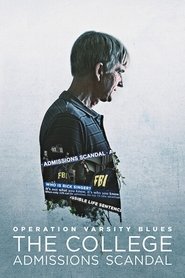Synopsis
Forensic Files profiles intriguing crimes, accidents, and outbreaks of disease from around the world. Follow coroners, medical examiners, law enforcement personnel and legal experts as they seek the answers to baffling and mysterious cases, which have been ripped from the headlines. Forensic Files puts a new spin on the "whodunit" genre and will satisfy the most ardent true-crime buffs.
Episodes
Forensic Files: Season 1
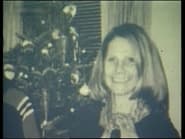
The Disappearance of Helle Crafts
The case of missing stewardess Helle Craft is recounted. Although her body was never recovered, police used forensic evidence to charge her husband with murder. It became the first murder conviction without a body in Connecticut.

The Magic Bullet
At the Dallas 'Pistol & Revolver' club in 1991, Trey Cooley, a young spectator, was watching a shooting competition, seated behind an air gun range. He was struck and killed by a stray bullet. See how ballistics, lasers, and forensic animation solve the riddle of the "magic bullet".
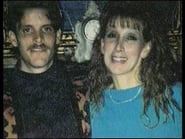
The House That Roared
Caren Campano disappears and the explanation of her husband Chris doesn't hold up. Police find a large stain on the Campano's bedroom carpet. They perform an eerie chemical test that reveals a room spattered with blood which, when cleaned off, could not be seen by the naked eye. Complex 'reverse paternity' tests of Caren's relatives match her blood type to the blood on the carpet. The evidence convicts Chris Campano of murder, even though the body wasn't found until a year later.

The Footpath Murders
The first case to use DNA evidence is detailed. In 1983 Leicester, England, police were stymied by a rape/murder of a 15-year-old girl; three years later, faced with a similar crime, they turned to Dr. Alec Jeffreys, a molecular biologist with a revolutionary approach to solving the case.
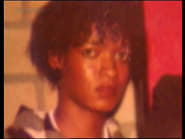
Planted Evidence
Single mother Denise Johnson is found dead in a deserted area outside of Phoenix, Arizona. Local investigators ask a molecular geneticist to pick out a tree in a 'lineup' when unidentified seed pods are found in suspect Mark Bogan's truck. The judge rules into evidence DNA profiles linking the pods to a tree near where the body was found. This is the first U.S. case where plant DNA was used to convict a criminal.

Southside Strangler
FBI psychological profiling and DNA evidence identify Timothy Wilson Spencer who raped and strangled five young women in Virginia. The U.S. criminal justice system's first use of DNA profiling in a serial murder case frees an innocent man after he spent two years in prison, and convicts a real killer.
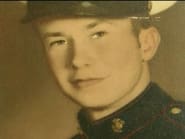
Legionnaires' Disease
Legionnaires' disease is one of the most famous medical detective stories, especially irritating for its missteps and frustrations. When 180 Legionnaires contract pneumonia-like symptoms after a Philadelphia Convention and 29 of them die, doctors and scientists are mystified. The determination of one scientist helps to determine the cause and likely vector of this deadly disease.

Episode 8
No description available.

Deadly Neighborhoods
Troubling clusters of deadly cancer cases strike concerned communities across the country. In a Phoenix suburb, too many children are fatally stricken with leukemia and, on a Connecticut street, there is a disproportionate amount of illness, including four cases of brain cancer. Modern environmental agents such as buried poisons and electrical substations are found... Could these be the culprits?

Episode 10
No description available.

Outbreak
Alarmingly high levels of thyroid hormones pump through the systems of South Dakota residents. Investigators study one family who all got sick, except their 12-year-old son who is a vegetarian.

The List Murders
In 1971, John List left a note with the bodies of his mother, wife, and three children in his mansion ballroom, funeral organ music blaring from a central sound system, and disappeared. Eighteen years later, all detectives had to work from is an outdated photograph of List. In 1989, the popular television series America's Most Wanted commissioned an age-scaled bust of List to aid viewers in identifying the confessed murderer. Dr. Frank Bender, nationally-recognized artist and sculptor, worked with forensic psychologist Richard Walter to develop a profile of the aging List. The final bust was so keenly accurate that 350 viewers called with tips, one of which led to List's arrest.

Episode 13
No description available.

Episode 14
No description available.

Episode 15
No description available.

Episode 16
No description available.
Forensic Files: Season 2

Episode 1
No description available.

Episode 2
No description available.

Episode 3
No description available.

Episode 4
No description available.

Episode 5
No description available.

Episode 6
No description available.

Episode 7
No description available.

Episode 8
No description available.

Episode 9
No description available.

Episode 10
No description available.

Episode 11
No description available.

Episode 12
No description available.

Episode 13
No description available.
Forensic Files: Season 3

Without a Trace
The deaths of a child and a truck driver in the same hospital on the same day are investigated to see if there is a link between them.

Knot for Everyone
In the mid-1980s, bodies of nude woman were found in remote hill of California. The police got a break when a known prostitute escaped an attacker and was able to identify him and his automobile. The suspect was 50-year-old Roger Kibbe. A criminalist was assigned to review the evidence in the case. Human hair found on one of the victims was similar to several hairs recovered from Kibbe's inner thighs. He was later charged with first-degree murder.

The Talking Skull
In 1987, a human skull and some bones were discovered at a Boy Scout Camp near Farmington, Missouri. Also found were some blue jeans, which helped determine the approximate height and weight of the victim. A facial reconstruction helped the investigators in this case. The victim was identified as Bun Chee Nyhuis and her husband Richard H. Nyhuis was now the prime suspect. Nyhuis was an assistant scoutmaster, which explained why his wife's remains were discovered at a scout camp and, eventually, he confessed to killing his wife. Richard H. Nyhuis was convicted of murder and sentenced to life in prison.
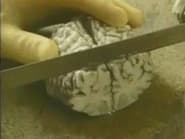
Foreign Body
Between 1986 and 1989, a disease swept through British cattle herds. The disease came to be known as the Mad-cow disease. Scientist began to suspect that this was somehow related to some human illness. A California neurologist, said both humans and animals were suffering from a mutated prion. When defective prions are transmitted from an infected host to a new host, they convert any normal prions they come across into copies of themselves. So it is possible for a mutated prion to be transmitted from a cow to a person by eating beef. Dr. Stanley B. Prusiner received a Nobel prize for his work with prion.

Deadly Delivery
In this classic episode of Forensic Files, the longest running true crime series in television history, a serial bomber was waging a vendetta against the legal profession: A judge, two attorneys and even a courthouse had been targeted. Employing a range of forensic techniques, investigators used evidence from the bombs to lead them to the perpetrator.

Similar Circumstances
Robert Sims returned home after working the night shift, and found his wife, Paula, unconscious on the kitchen floor. Their two-year-old son, Randy, was asleep in an upstairs bedroom, but their six-week-old daughter, Heather, was missing. Paula Sims was the only witness to a crime that baffles investigators to this very day.
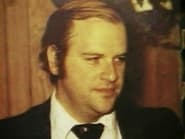
Grave Evidence
The shooting of a man during a hunting trip is reopened years after the incident, and the victim's hunting partner becomes a suspect.
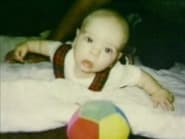
Deadly Formula
A possible case of Munchhausen syndrome is investigated after an infant dies of what appears to be toxic levels of antifreeze in his system.
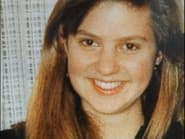
Beaten by a Hair
Early one fall morning, Laura Houghteling left her Bethesda home and walked to the station to take a train to work. She was never seen again. A peculiar strand of hair found in Laura’s hairbrush enabled investigators to unravel the mystery of her disappearance.
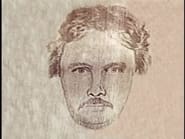
Crime Seen
Edward Honaker was convicted of rape, sodomy and aggravated sexual battery; he was sentenced to three life terms in prison. Honaker steadfastly maintained his innocence. After years in prison and writing countless letters, he finally found someone who believed him, and was willing to pay for DNA testing which could prove he was telling the truth.

Speck of Evidence
On September 17, 1984, in a suburb of Tucson, Arizona, eight-year-old Vicki Hoskins left home on her pink bicycle to mail a letter for her mother. She never returned, but her slightly damaged bicycle was found nearby. Investigators turned to forensic science, in the hope it would tell them not only what happened to Vicki, but also who was responsible.

Broken Bond
When a two-year-old boy was rushed to the hospital suffering from brain seizures and breathing difficulties, doctors could not find the cause of his illness. Then the boy’s sister provided an important clue, and raised the possibility of a syndrome of which few had ever heard.

Out of the Ashes
On a cold December night in 1993, Rose Larner stopped in a convenience store on her way to her boyfriend’s house. She was never seen or heard from again. Rose’s disappearance remained a mystery, until a tiny clue found years later revealed a tragic tale of drugs, romance and revenge.
Forensic Files: Season 4

Episode 1
No description available.

Episode 2
No description available.
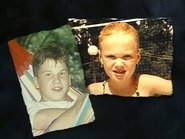
Ultimate Betrayal
Debora Green lost two children in a fire that burnt down her mansion late one night. Routine procedures occurred and both Debora Green and her previous husband Mike Farrar were questioned. Suspicions arose when Debora refused to cooperate during questioning. Police then questioned Mike and uncovered disturbing stories proving Debora was dangerous. She had poisoned Mike during their separation and told him he would only get custody of the children over their dead bodies. Debora's singed hair and the initial location of the fire proved her involvement in the arson.

Cement the Case
Shirley and Ed Andronowich were regulars at a neighborhood bar. One night, Ed decided to leave early and Shirley wanted to stay. There was a brief argument, and Ed went home alone. The next day, Shirley’s badly beaten and mutilated body was found outside of a nearby high school. The murder weapon was a 55-pound piece of concrete. It was up to investigators to determine what had happened to Shirley Andronowich and who was responsible.

Innocence Lost
Five-year-old Melissa Brannen disappeared from a Christmas party in 1989. The fibers on her clothes were the only means for police to determine her abductor. Police grew suspicious of Cal Hughes who was washing his clothes at 1am when they came to his home. They searched his car and found several fibers similar to the clothes Melissa had worn to the party. However, there was no way to test the fibers until an investigator's wife remembered seeing Melissa's outfit in a catalog. The same outfit was taken from another customer and tested. The fibers matched and Cal Hughes was convicted of abduction with intent to harm.

Til Death Do Us Part
The doctors at the hospital couldn’t determine the cause of Bobby Curley’s hallucinations and intense pain. At first, they treated it as a neurological disorder, but Bobby’s condition deteriorated. Something he was being given in the hospital wasn’t curing him, it was killing him.
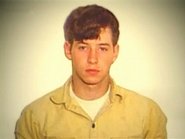
Ties That Bind
Two young boys were found tied and murdered with similar wounds within three months of each other. The rope used to tie the boys was very unique: it was made of left-over garbage in South Korea and used by the air force. Another clue turned up when one of the boy's brother was hypnotised and remembered a uniformed man in a tan car. Shortly after, someone noticed a strange car and gave the licence plate number to police. This vital information led to the conviction of John Joubert, an air force-enlisted man who carried the same exact rope used to bind the two boys.

Body of Evidence
Karla Brown was the youngest of three girls in the Brown family. After many failed relationships, Karla became engaged to Mark Fair. The couple began moving into their dream home in June 1978. On the morning of June 20, Mark left for work and Karla remained at home. When Mark and a friend returned home that evening, they found Karla dead. The condition of Karla's body told investigators that she was a victim of sexual assault; she had resisted, struggled, and was killed. The Police questioned Paul Main and John Prante, who lived across the street. They were considered low-level suspects. After a second autopsy, they were able to re-examine bite marks. A Computer enhancement gave a better view of the bite marks, and the science of forensic odontology identified John Prante. On July 15, 1983, five years after the murder, Prante was found guilty and sentenced to 75 years in prison.

Accident or Murder?
Clayton Johnson, a Nova Scotia schoolteacher, left for work on the morning of February 20, 1989. At 7.40 AM, the school bus arrived to pick up the Johnson children. At 7.51 Mrs. Molloy arrived to drop off her child at the Johnson home. She found Janice Johnson lying at the bottom of the basement stairs in a pool of blood. Clayton Johnson later married a 22-year-old member of his Pentecostal congregation. When homicide investigator Brian Oldford heard this, he became suspicious and decided to reinvestigate. He learned that Clayton had taken out a $125,000 life insurance policy on his first wife, Janice, shortly before she died. Clayton Johnson was charged with the first-degree murder. By examining the photos and nature of the injuries, they were convinced that she had fallen backwards. The accidental fall scenario would also account for the complete lack of defensive wounds on Mrs. Johnson or Mr. Johnson. Testimony was presented to the Canadian high courts and a decision is pending.

Core Evidence
At 16 months of age, Anne Grace Gimmenstad became very ill and was rushed to the hospital, and within two weeks died. Following extensive medical examinations, it was determined that Anna had been the victim of the deadly bacteria E-Coli. Anna'a mother recalled a trip to the grocery store when Anna pointed excitedly at her favorite drink, Odwalla apple juice. As early as 1993, tests on samples of Odwalla juices found high levels of general bacteria. Federal and state inspections reports confirm that the company used two loads of apples with relatively high defect levels on the day the juice was made. The genetic markings on the E-Coli in the victims matched the bacteria found in the product bottled that day. Odwalla pleaded guilty to violating Federal food safety laws and agreed to pay a $1.5 million fine for the outbreak of E-Coli in its juices.
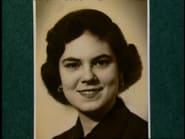
Haunting Vision
On the evening of January 9, 1967, Lori Keidel, her two sisters, and her brother were left home alone while their father went to a nearby laundromat. Suddenly, a large blaze engulfed their brick ranch home. Only a few months earlier, the children's mother disappeared, and had made no effort to contact them. Finally, on June 9, 1993, Lori found the courage to tell police the vision that had possessed her for 29 years. The most shocking revelation was that Lori had witnessed her mother's death. On September 14, 1994, an eight by nine foot square of concrete was removed from the side yard, and a skeleton was found in the exact spot her youngest daughter remembered as being her grave. Gene Keidel was arrested for his wife's murder nearly 30 years after her death. Gene was convicted of first degree murder and sentenced to life imprisonment.

Episode 12
No description available.

Episode 13
No description available.

Episode 14
No description available.
Forensic Files: Season 5
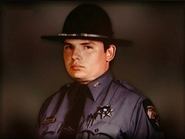
Badge of Deceit
For more than a decade, women in a small Louisiana city lived in fear of a serial rapist. Fortunately, computer technology and behavioral science combined to give police a new forensic tool: geographical profiling. Police narrow their search to one man, but to prove he’s the perpetrator they turn to an unlikely piece of evidence--- a discarded cigarette butt.

Dew Process
When the wife of a well-known dentist is found dead, police are unsure who killed her. Some fibers and a study of the weather patterns on the night of the murder break the case open and reveal the real killer.
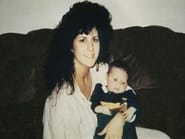
A Woman Scorned
When a young mother and her infant son are found dead in a cornfield, the obvious suspect is the husband and father of the victims. But some insects found on the bodies reveal a vital clue, as does a long, blonde hair found on the victims.

A Voice from Beyond
When a decomposed body is discovered inside a barrel, police immediately suspect foul play. But the body had been placed there 30 years earlier. One of the few clues was an address book found along with the body but years of moisture had washed away the ink. Scientists desperately searched for a way to unlock the secrets of that address book.

Burning Ambition
In this classic episode of Forensic Files, the longest running true crime series in television history, a Seattle policeman’s home is destroyed by an arsonist. One month later, the officer arrests a low-level drug dealer, who confesses to the arson. But when the suspect vanishes, investigators begin to question the authenticity of his confession.
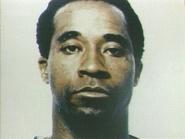
Memories
Dianna Green was just 20 years-old and pregnant when she was brutally raped and beaten in her apartment. The assault caused the death of her unborn baby. When Dianna came out of a coma 3 weeks later, she told police she knew the identity of her attacker. But was her memory accurate?
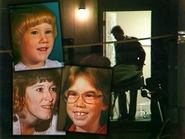
Trail of Truth
A mother and her two young daughters are found brutally murdered. The crime scene yielded a good deal of evidence, but no conclusive link to the prime suspect. To solve the puzzle, an FBI analyst designs a unique experiment.
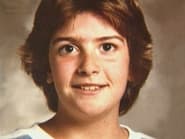
Material Evidence
A young girl is found dead, the victim of an apparent sex-killer. Authorities are intrigued by unusual orange fibers embedded in clothing found near the victim. Months pass and the case goes cold, until a van turns up with what appear to be the same orange fibers.

Kill'igraphy
In the back woods of Georgia, in a dilapidated house, a 49 year old recluse named Virginia Ridley was found dead. A medical examiner ruled the death a homicide. But who would murder someone who seldom ventured out of her home? Investigators found some clues in the notes she had written shortly before her death.

Nursery Crimes
Why do children at a Texas hospital seem to be dying at a higher rate than at any other hospital in the country? Medical investigators have no answers until they discover that one nurse seems to be on-duty in almost all the fatal cases. But proving the connection seems impossible until an international team of doctors uncovers an unlikely murder weapon.

Lasting Impression
When the decomposed body of a young girl is discovered, police have no clues to her identity. But days earlier, a stabbing victim told them she thought she might have witnessed a murder. Police think the cases might be related, and to prove it, they turn to an unusual piece of evidence: a tiny wad of chewing gum found near the victim’s body.
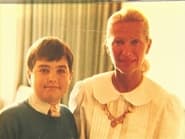
Foundation of Lies
At the age of 12, a boy's testimony helped convict the man who murdered his mother. Five years later, discrepancies in the autopsy lead him to question if the murdered woman really was his mother. If it wasn't, an innocent man had been sent to prison.

Unholy Vows
Some of the refugees who sought asylum in the United States after World War II lied about the atrocities in which they’d participated. Years later, when a high-ranking religious figure was suspected of war crimes, there seemed to be no way to prove his guilt or innocence... until a postcard allegedly written by him 40 years earlier was found in a German archive.

Broken Promises
Don't make a tape recording if you don't want to get caught, especially if it's the 2nd husband that has died mysteriously. Watch Forensic Files to get the answer.

Time Will Tell
A Canadian financier assumed the name of a co-worker as part of a money-laundering scheme. The man turned up dead in the ocean, with an anchor tied around his torso. Police hoped to identify him with a tattoo and the watch he was wearing. But it would be the ten-pound anchor which enabled them to crack the case.

Second Shot at Love
Cincinnati heart surgeon Dr. Darryl Sutorius had a second chance at love when he married a pretty, young divorcee, but happiness is sometimes elusive. Dr. Sutoruis fell into a serious depression and apparently commited suicide with a .38-caliber pistol. But why did he fire a test shot into the sofa cushion before killing himself?

Journey to Justice
When a prosecutor discovers evidence linking a habitual drunk driver to a hit-and-run in which a child is killed, he combines the talents of an accident reconstruction expert with a video specialist. This case was the first in which video in the courtroom withstood an appeal, and helped make “video testimony” viable in other cases.

Video Diary
In 1998, a convience store clerk in Lansing, Michigan, was shot to death during a robbery. No one else was in the store at the time. But there was an eye witness, a security camera. Unfortunately, the story it told was far from clear.

Deadly Knowledge
When 23-year-old college co-ed Tina Biggar goes missing, her boyfriend and family fear she has been murdered. A police investigation reveals details about her past that no one, not even her closest friends, suspected: She was a student by day and a $100-an-hour call-girl by night. Her many clients were all suspects in her disappearance, as was her boyfriend. But when her body is discovered, police obtain evidence that reveals that her killer was former client Kenneth Tranchida, as well as more details about her bizarre double-life and its tragic consequences.
Forensic Files: Season 6

Episode 1
No description available.

Episode 2
No description available.

Episode 3
No description available.

Episode 4
No description available.

Episode 5
No description available.

Episode 6
No description available.

Episode 7
No description available.

Episode 8
No description available.

Episode 9
No description available.

Episode 10
No description available.

Episode 11
No description available.

Episode 12
No description available.

Episode 13
No description available.

Episode 14
No description available.

Episode 15
No description available.

Episode 16
No description available.

Episode 17
No description available.

Episode 18
No description available.

Episode 19
No description available.

Episode 20
No description available.

Episode 21
No description available.

Episode 22
No description available.

Episode 23
No description available.

Episode 24
No description available.

Episode 25
No description available.

Episode 26
No description available.

Episode 27
No description available.

Episode 28
No description available.

Episode 29
No description available.

Episode 30
No description available.
Forensic Files: Season 7

The Cheater
Details the death of Walter Scott (Walter Notheis Jr.), lead singer for the 1960s band Bob Kuban and the In-Men, who disappeared in 1983. James H. Williams, Sr. was later arrested and convicted of murdering both Scott and his unfaithful wife, Sharon Williams.

Forever Hold Your Peace
An examination of an unusual case in Texas involving the 1988 rape and murder of Nancy DePriest, while at work at Pizza Hut. After suspect Chris Ochoa confessed and implicated Richard Danzinger and they were imprisoned, the case was considered closed. Eight years later, Achim Marino confessed to the same crime. DNA evidence cleared Ochoa while proving that Marino was, in fact, the perpetrator.
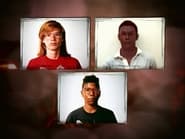
Reel Danger
The investigation into a brutal attack on two boys near a pond relies on evidence fished out of the murky water. It was the first case where Diatom evidence was used to place a suspect at the scene of the crime and references the subsequent case from Season 2 Forensic Files episode Micro-Clues, which also used Diatom evidence. The evidence helped in the conviction Christopher Green & Brian Davis, who were both 16 years old and were tried as adults. Their accomplice Jason, who was a minor, was sent to a juvenile detention center.

Who's Your Daddy
In 1988, the body of a young woman was discovered in an Ohio river under ice. Most of the evidence found at the crime scene – hairs, fibers, & fingerprints-- had been washed away. But the victim's 6 year-old son unwittingly told investigators all they needed to know about the killer... and he did it without saying a word. The clue was in his genes.
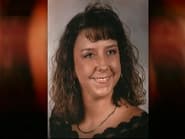
The Alibi
In 1991, A high school girl vanishes, after attending a party. Her abandoned vehicle was found in a school parking lot, near her home. The prime suspect had not one, but two alibi witnesses for the night she disappeared. A solid alibi can often overcome much circumstancial evidence. But forensic evidence, is another matter .
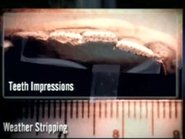
A Bite Out of Crime
In 1997, two years after a series of unsolved kidnappings and sexual assaults in California. One of the victims suddenly recalled an important detail of the crime which she had not told police. She left some forensic evidence in the assailant's vehicle, evidence that left quite an impression.
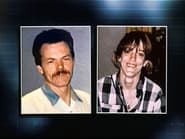
Purr-fect Match
An examination of the first time animal DNA was used to solve a criminal case. In 1994, on Canada's Prince Edward Island, the body of Douglas Beamish's estranged wife Shirley Duguay was discovered. Authorities linked 20 cat hairs found on her jacket to a cat owned by Beamish's parents, with whom he lived. Scientists estimated that chances that the hairs came from another feline were one in 50 million. A jury later convicted Beamish of second-degree murder; he was sentenced to 18 years without parole.

Bio-Attack
1984 Rajneeshee bioterror attack: Investigators uncover a plot to overthrow the government, after a unique strain of salmonella makes people ill.

A Shot in the Dark
Two sets of scientists, probe a woman's death.
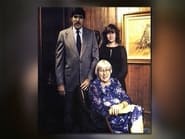
Without a Prayer
The Madalyn Murray O'Hair case is related. The founder of American Atheists disappeared in 1995 along with one of her sons and granddaughter, along with $500,000 in gold coins. In time, the police honed in on several suspects, including David R. Waters, who worked as the office manager for O'Hair's organization. In 2001, he led authorities to her grave, located on a ranch near San Antonio.
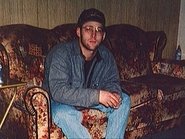
A Clutch of Witnesses
Two eyewitnesses may hold the key to the death of a motorcycle gang member.
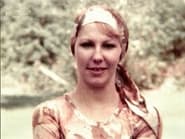
Scout's Honor
In Pennsylvania 1984, a passer-by finds the torso of a woman in a cardboard box. Investigators rely on insect activity analysis by a forensic entomologist to determine when the murder victim was killed. She remained unknown until a year later, when her sister called to report her missing. Eventually she was identified as Edna M. Posey, a local prostitute. Investigators then looked into Donald Ruby, whom Edna had asked to watch her 11-year-old son Randy. Investigators theorized that Donald Ruby had grown fond of Randy and killed Edna to keep her from taking her son back. Donald Ruby was convicted of her murder, but would further forensic entomology change the outcome?

A Touching Recollection
The investigation into the kidnapping and rape of an 18-year-old Ohio woman is aided when the victim returns hours after the incident occurred. With her help, the police are able to track the assailant Craig Bailey to his front door.

A Leg to Stand On
The police investigate when a severed leg is discovered in the garbage. Conventional means of identifying the victim are impossible, leading investigators to rely on DNA, forensic anthropology and toxicology to identify the victim. The victim was identified as Norman Klaas and, through forensic investigation of his home, it was determined that local meth dealer Graham King was the murderer.
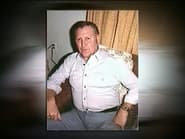
Partners in Crime
How Illinois scientists solved a 1992 murder case involving cremation. It takes a long time and a very hot fire to cremate a human body, and thus destroy all evidence of foul play. But the coroner who performed the autopsy on the badly burned body of Charles "Jack" Lynch found telltale clues. Not only had the victim been burned, he’d also been stabbed -- 24 times, with two different knives. Police knew that a person, acting alone, would probably use only one weapon. So investigators were on the lookout for a couple of killers.
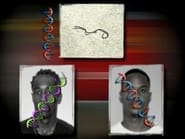
Within a Hair
A look back at the case of the River Park Rapist, who assaulted four women in South Bend, Ind., during 1996. Law enforcement officers arrested Richard Alexander, who was convicted in 1998 and sentenced to 70 years in prison. In 2001, Michael Murphy confessed to one of the two rapes of which Alexander had been convicted and new DNA testing exonerated Alexander.
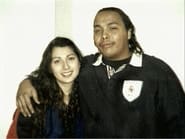
Chief Evidence
The 1996 Seattle murder of suburban couple Raquel Rivera & Jay Johnson is detailed. Investigators first believe the slayings were the result of a drug deal gone bad. However, no drugs are found in the house and the victims' blood isn't present on the clothing of the suspects. Evidence from the couple's dog Chief eventually ties one of the murderers to the scene. This is one of the first cases where dog DNA was used to convict. Kenneth Leuluaialii and George Tuilefano were sentenced to life in prison without parole.
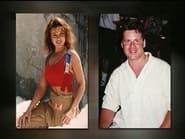
A Bitter Pill to Swallow
The story of firefighter Michelle Baker is related. After meeting Dr. Maynard Muntzing, she became pregnant by him. After this news, she was ill whenever they were together. The coincidences led her to suspect that he was doing her harm, so she set out to prove it.

Sip of Sins
A look back at a trio of unsolved murders that occurred in Wichita Falls, Texas during the 1980s, details how a fourth murder from the same time period provided the police with more than they realized. John Little, an investigator for the DA's office, picked up the cold cases years later. He soon connected the fourth crime's confessed killer, Faryion Wardrip, to the other murders.

Telltale Tracks
The disappearance of Philadelphia college athlete Aimee Willard is investigated after her car was found, still running on the roadside. When her body is found, the police find unusual marks on her body and DNA evidence that eventually lead to her killer, Arthur Bomar.

Ghost in the Machine
The investigation into the apparent overdose suicide of Reverend Bill Guthrie's wife Sharon. Detectives suspect foul play after they recover incriminating files from Bill's computer and learn of his infidelity.

Frozen in Time
The 1991 disappearance of Newport Beach, California resident Denise Huber stumps investigators. Three years later, Arizona residents call police to report John Famalaro, who has kept a Ryder rental truck in his driveway, which they suspect is stolen. Upon further investigation, police find a body within a freezer inside the truck, which they conclude is Denise Huber.

Cold Storage
The 1987 disappearance of Houston resident Tracy Jo Shine is recalled. The investigation went cold until 2000, when a "cold case squad" learned that the woman's ex-boyfriend Michael Neal had bragged about killing her.
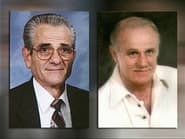
The Metal Business
Doctors cannot pinpoint the source of a businessman's illness.

Dressed to Kill
The disappearance of 6 year-old Michelle Lee Dorr is detailed. Although her father confessed to murdering her, the police soon poked holes in his story, leaving the case unsolved for 14 years. New suspect Hadden Clark was heard talking to himself, which gave investigators a clue where Michelle was killed.

Palm Print Conviction
The 1996 investigation into 48-year-old Martha Hansen's murder in Anchorage is helped by a legal requirement that bars have video cameras installed on the premises. Using video, hair and blood evidence, investigators determine that Evans Lee Curtis was the murderer.

A Vow of Silence
A look at the case against Jack Reeves. In 1994, friends reported his mail-order bride Emelita Villa had disappeared. The police centered its suspicions on Reeves and, while pursuing leads, uncovered information linking him to the deaths of two former wives.

Elephant Tracks
The Kowalczk/Thompson Murder case. The murders of an elderly couple leave stumped until, two years later, they receive a major break. A jeweler looking through old newspaper clippings recognizes a necklace the female victim wore as having been pawned in her own shop.

A Bag of Evidence
The murder of 9-year-old Jessica Knott is investigated. Investigators use a garbage bag to connect suspect James Edward Crow, Jr. to the crime.

Tooth or Consequences
An investigation into the murder of Katie Poirier is stymied by the lack of a body, but they find a few charred remains including a tooth. The unique properties of the filling in the tooth helps investigators identify her remains. Further forensic evidence is then used to convict Donald Blom of her murder.
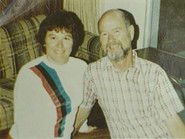
The Sniffing Revenge
The Janet Overton Case. The investigation into a suspicious death hits a dead end when the autopsy indicates that no foul play was involved. But a telephone tip and the sensitive nose of a forensic examiner indicate otherwise.

Sleight of Hand
The suspect in a crime eludes arrest for 16 years because the police can't tie him to it. That changes, however, when investigators learn the culprit is left-handed, putting a new spin on old facts.
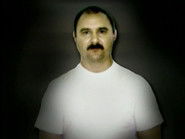
Scratching the Surface
Forensic scientists work with the only clue recovered from a multiple-victim shooting: a 12-gauge shotgun. Scientists use unique methods to lift the serial number from the weapon in order to trace it to its owner, eventually discovering Gerardo Manso.

Fire Proof
Relates the story of Paul Kenneth Keller, a serial arsonist responsible for several fires that caused millions of dollars worth of property damage and the deaths of three people. More than 75 Seattle-area arsons are probed before he was discovered, partly through the use of forensic hypnosis.
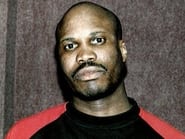
X Marks the Spot
The use of the computers by law enforcement is detailed in this look at a series of crimes in St. Louis that stumped the local police and the FBI.

All Charged Up
Details the case of the Center City Rapist and the murder of Shannon Schieber. Philadelphia authorities use an anonymous letter and geographic profiling to hone in on a suspect who attacks victims who live on upper floors of apartment buildings. When they hear of similar crimes in Colorado, they do further profiling to find Troy Graves.

Breaking the Mold
A family in Dripping Springs, Texas seems to be living the perfect life when suddenly their 3-year-old son develops a respiratory condition in March 1999. The father later is shown to have signs of Alzheimer's disease, and while boarding a plane a month later, meet an investigator who later reveals that their ill health is due to a form of black mold in their modern home, which was based on the movie version of "Tara", the home of Scarlett O'Hara in Gone with the Wind.

House Call
A murder investigation in St. Petersburg, Florida, crosses jurisdictions from New York and Jamaica. The police rely on cell phone mapping, wiretapping and a host of forensic evidence to link a suspect to a murder.

Marathon Man
The Jane Dorotik case. A man's body is discovered near his family's horse ranch. His wife claims he went jogging, but investigators doubt her story.
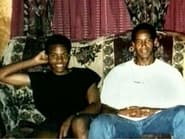
The Sniper's Trail
Details the case of the Beltway sniper attacks, a 3-week shooting spree which left 10 people dead in the Washington, D.C. area.
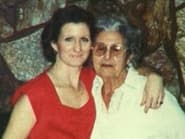
Plastic Fire
Georgia resident Sheila Bryan, who was convicted of killing her mother in a car fire, is granted a new trial. An expert fire witness shares an opinion on how the fire ignited that differs from the prosecution's theory and, if verified, would clear Bryan of any culpability.

Last Will
Authorities track a kidnapper who allowed his victim, 17-year-old Shari Smith, to write a last will and testament on a note pad, then informed the family of her murder, as well as the later murder of a 10-year-old Debra May Helmick. A phone number written on a previous page left a lasting impression, which helped to convict Larry Gene Bell.
Forensic Files: Season 8

Episode 1
No description available.

Episode 2
No description available.

Episode 3
No description available.

Episode 4
No description available.

Episode 5
No description available.

Episode 6
No description available.

Episode 7
No description available.

Episode 8
No description available.

Episode 9
No description available.

Episode 10
No description available.

Episode 11
No description available.

Episode 12
No description available.

Episode 13
No description available.

Episode 14
No description available.

Episode 15
No description available.

Episode 16
No description available.

Episode 17
No description available.

Episode 18
No description available.

Episode 19
No description available.

Episode 20
No description available.

Episode 21
No description available.

Episode 22
No description available.

Episode 23
No description available.

Episode 24
No description available.

Episode 25
No description available.

Episode 26
No description available.

Episode 27
No description available.

Episode 28
No description available.

Episode 29
No description available.

Episode 30
No description available.

Episode 31
No description available.

Episode 32
No description available.

Episode 33
No description available.

Episode 34
No description available.

Episode 35
No description available.

Episode 36
No description available.

Episode 37
No description available.

Episode 38
No description available.

Episode 39
No description available.

Episode 40
No description available.

Episode 41
No description available.

Episode 42
No description available.
Forensic Files: Season 9

Episode 1
No description available.

Episode 2
No description available.

Episode 3
No description available.

Episode 4
No description available.

Episode 5
No description available.

Episode 6
No description available.

Episode 7
No description available.

Episode 8
No description available.

Episode 9
No description available.

Episode 10
No description available.

Episode 11
No description available.

Episode 12
No description available.

Episode 13
No description available.

Episode 14
No description available.

Episode 15
No description available.

Episode 16
No description available.

Episode 17
No description available.

Episode 18
No description available.

Episode 19
No description available.

Episode 20
No description available.

Episode 21
No description available.

Episode 22
No description available.

Episode 23
No description available.

Episode 24
No description available.

Episode 25
No description available.

Episode 26
No description available.

Episode 27
No description available.

Episode 28
No description available.

Episode 29
No description available.

Episode 30
No description available.
Forensic Files: Season 10

Episode 1
No description available.

Episode 2
No description available.

Episode 3
No description available.

Episode 4
No description available.

Episode 5
No description available.

Episode 6
No description available.

Episode 7
No description available.

Episode 8
No description available.

Episode 9
No description available.

Episode 10
No description available.

Episode 11
No description available.

Episode 12
No description available.

Episode 13
No description available.

Episode 14
No description available.

Episode 15
No description available.

Episode 16
No description available.

Episode 17
No description available.

Episode 18
No description available.

Episode 19
No description available.

Episode 20
No description available.

Episode 21
No description available.

Episode 22
No description available.

Episode 23
No description available.

Episode 24
No description available.

Episode 25
No description available.

Episode 26
No description available.

Episode 27
No description available.

Episode 28
No description available.

Episode 29
No description available.

Episode 30
No description available.

Episode 31
No description available.

Episode 32
No description available.

Episode 33
No description available.

Episode 34
No description available.

Episode 35
No description available.

Episode 36
No description available.

Episode 37
No description available.

Episode 38
No description available.

Episode 39
No description available.

Episode 40
No description available.

Episode 41
No description available.

Episode 42
No description available.
Forensic Files: Season 11

Episode 1
No description available.

Episode 2
No description available.

Episode 3
No description available.

Episode 4
No description available.

Episode 5
No description available.

Episode 6
No description available.

Episode 7
No description available.

Episode 8
No description available.

Episode 9
No description available.

Episode 10
No description available.

Episode 11
No description available.

Episode 12
No description available.

Episode 13
No description available.

Episode 14
No description available.

Episode 15
No description available.

Episode 16
No description available.

Episode 17
No description available.

Episode 18
No description available.

Episode 19
No description available.

Episode 20
No description available.

Episode 21
No description available.

Episode 22
No description available.

Episode 23
No description available.

Episode 24
No description available.

Episode 25
No description available.

Episode 26
No description available.

Episode 27
No description available.

Episode 28
No description available.

Episode 29
No description available.

Episode 30
No description available.

Episode 31
No description available.

Episode 32
No description available.

Episode 33
No description available.

Episode 34
No description available.

Episode 35
No description available.

Episode 36
No description available.

Episode 37
No description available.

Episode 38
No description available.

Episode 39
No description available.

Episode 40
No description available.

Episode 41
No description available.

Episode 42
No description available.
Forensic Files: Season 12

Sharper Image
When a young girl was found dead, police quickly arrested the most likely suspect. But cutting-edge technology from NASA enabled a forensic odontologist to prove the wrong man was behind bars. With the killer still on the loose, the investigation was far from over.

Insulated Evidence
It's usually easy to determine how a criminal entered the crime scene. But in this case, it was far from clear. It looked like the killer vanished into thin air...and perhaps he had.

Cold Hearted
When a young fireman died from what appeared to be serious but undiagnosed heart disease, his family and friends were devastated but they had no proof of foul play. Then they learned that, six years earlier in a nearby town, a young police officer died in the same way. The men had one thing in common: At the time of their deaths, they were married to the same woman.

Wheel of Misfortune
Security cameras in a casino tracked a young woman's movements until shortly before she disappeared. She was never seen again, but through the evidence she left behind, she was able to tell investigators what happened to her and who was responsible.

Quite a Spectacle
It was one of the most unusual cases in forensic history. Investigators had to find a way to solve a murder case with evidence which consisted of a squashed tomato found at the crime scene, and tiny, pinpoint reflections of light in a photograph. Would it be enough to catch a killer?

Transaction Failed
When a dedicated, well-respected teacher disappeared, police had to determine if she'd gone on vacation without telling anyone, or if she was the victim of foul play. Investigators turned to forensic science, hoping to find the answers they needed.

The Day the Music Died
Seattle police had no suspects in the violent murder of post-grunge singer, Mia Zapata. More than a decade would pass before the evidence collected by an extraordinarily prescient medical examiner could be used by forensic scientists to identify the killer.

Sole Survivor
A Michigan State University grad student disappeared and was presumed dead. With the help of a professor of geological sciences, police hoped to get the "dirt" on her killer.

Insignificant Others
How unlucky could one man be? His wife had taken her own life, and his college sweetheart had killed herself in much the same fashion fourteen years earlier. Investigators had to determine if this was a bizarre coincidence, or an attempt to get away with murder... twice.
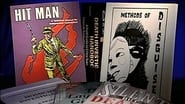
Catch 22
In 1996, 54-year-old Gayle Isleib was ambushed in her Manchester, Connecticut driveway and shot to death. During their investigation, police learned that her 25-year-old co-worker Tyrone Montgomery was in love with her and that she had spurned his advances. They now had to determine if love had turned into obsession... and a motive for murder.

A Cinderella Story
The victim had been sexually assaulted and stabbed to death on the beach, just ten yards from the hotel where she was staying. A pair of men's tennis shoes was discovered near her body. Police were sure that if they found the man who fit the shoes, they would also find the man who committed the crime.
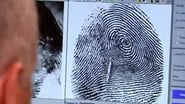
Screen Pass
A 13-year-old girl went missing from her Colorado home, and the only evidence the kidnapper left behind was three fingerprints on a window screen. Two years later, a latent print examiner, new to the county and the crime lab, changed the course of the investigation by sharing a little-known fact with his colleagues.

Pressed for Crime
A brutal murder, lots of suspects, and conflicting evidence but the forensics were clear on one thing: The killer knew his victim. And that alone gave investigators a head start.

Finger Pane
A serial killer was on the loose and police had to find him before he struck again. Their most promising lead was an unusual one: a bloody fingerprint on the body of one of the victims.

Good as Gold
On Halloween night 2004, Adriane Insogna and Leslie Mazzara were brutally murdered in their Napa, California home. The killer was not seen by their downstairs roommate, but he left his DNA behind in some cigarette butts and a groundbreaking test revealed his race and even the color of his eyes and hair. When this information was made public, Eric Copple went to the police and confessed.

Freedom Fighter
After the suspect was convicted of arson and murder, he steadfastly maintained he did not commit the crimes, but he was sentenced to a minimum of 25 years in prison. He had no money, no lawyer and only a fifth grade education, but he never gave up. He turned to the law books in the prison library and television programmes about forensic science, and set out to prove his innocence.

Dog Day Afternoon
A woman was brutally murdered in her home, and the only witnesses to the crime were the family dogs. An expert in canine behaviour was convinced the killer knew both the victim and the animals, and he was determined find out exactly what the dogs had seen.
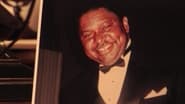
Shattered Innocence
The killer probably hoped to cover his tracks by staging the crime scene. But investigators saw through the attempt almost immediately, and they turned to forensic science to learn what really happened that night.
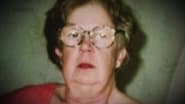
All Butt Certain
A six-year-old girl ran and hid when she saw her grandmother being beaten to death, but the man followed her, beat her, assaulted her. The girl said he was her Uncle Clarence, and he was convicted because of her identification. She recanted her testimony years later, but the court denied Clarence's petition for a new trial. His wife was convinced he was innocent, and decided to conduct her own investigation to prove it.
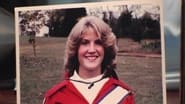
Jean Pool
In 1984, the body of college co-ed Laura Salmon was found on a Georgia farm, covered with her own denim jeans as well as the jeans of the killer. Investigators had plenty of suspects, including former boyfriend David Kyle Gilley, but no conclusive evidence linking any of them to the crime. More than a decade later, sophisticated technology would breathe new life into a case grown cold with the passage of time, which would implicate Gilley.

Traffic Violations
The body of an attractive young woman was found a mile from her abandoned car. Police were especially concerned when they realised the victim had come to them for protection just two weeks earlier, after a road rage incident. Concern turned to dread when the evidence began to point not to an aggressive driver, but to one of their fellow police officers.

Brotherly Love
In 1969, 25-year-old phone operator Diane Maxwell is raped and murdered by a black man. Her brother promised he'd find out who was responsible and bring the killer to justice. It would take more than thirty years, but the young man kept his promise and, in doing so, brought closure to his family.

Disrobed
The crime scene was especially violent: A husband and wife had been shot to death in their bedroom. At first, investigators thought their 16-year-old daughter was lucky to have escaped unharmed... but after a while, they wondered if the reason she was alive had more to do with careful planning than good fortune.

Driven to Silence
A young, attractive hairdresser was sexually assaulted and murdered in her own beauty salon. The evidence at the crime scene didn't match any of the suspects and, after the initial investigation, the case went cold for ten years. Then a witness who had been silent for more than a decade decided to do the right thing.

Printed Proof
When two women went missing and were later found brutally murdered, police wondered if they were victims of a hate crime; the women lived together and were politically active, outspoken advocates of gay rights. But the motive turned out to be something age old, something with which investigators were all too familiar: greed, fueled by obsession.

About Face
A human skeleton was discovered in the North Carolina marshlands and, when investigators learned she'd been dead for 18 months, they knew it would be difficult to find out who she was, much less who killed her. A forensic anthropologist was able to determine the victim's race, age and height, but it would take an inventive computer consultant to give her a face and a name.
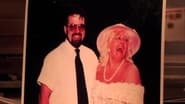
In the Bag
After shooting his victims in the head, the killer staged the scene, placed the incriminating evidence into a plastic bag and tossed it into the river. Instead of floating downstream, it became entangled in overhanging branches. Days later, when police found it, they hoped clues to the killer's identity and the solution to the crime were "in the bag.

Yes, in Deed
In a tragic twist of fate, just days after the woman sold her home and moved to a modest trailer, a fire took both the trailer and her life. But the autopsy proved this was no accident. It was arson and murder. Investigators had to determine who wanted the woman dead... and why.
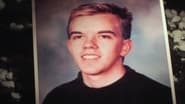
Guarded Secrets
A security guard disappeared from his post without a trace; his remains were found a year later in a remote camp site. More than a decade would pass before a phone call breathed life into the cold case, and a paint smear on the bottom of the victim's boot helped scientists determine what happened during the last hour of his life.

Smoking Out a Killer
A college senior was found raped and murdered near an unpaved footpath used by students to walk from one side of campus to the other. Five years earlier, a student was assaulted and killed in her off-campus apartment and, a year after that, another student was killed in almost the same way. Police feared a serial killer was on the loose and they needed to determine what – or who – these women had in common.
Forensic Files: Season 13

Frozen Assets
In 2004, Mary Ann Clibbery was found brutally murdered in her Illinois business and investigators had to determine if this was a robbery gone wrong or a calculated murder. The evidence at the scene told police what happened and they got a huge break when evidence from the murder on top of a nearby frozen river. The investigation focused on the business co-owner George Hansen when police found that he was embezzling from the company and that evidence in the bag also pointed to him.

House Hunting
In 2006, Texas real estate agent Sarah Anne Walker was found brutally murdered in a model home. Weeks later, a witness came forward who may have seen the killer and police used forensic hypnosis to help him recall every detail of the man's appearance. His description was used to create a composite sketch, which police used to draw the killer Kosoul Chanthakoummane out of hiding.

Shoot to Thrill
In 2003, St. Cloud teenager Jason MacLennan returned home after a night out with friends and discovered his father Ken's body lying in a pool of blood. There were shoe impressions outside in the new-fallen snow; because the victim's wallet and watch were missing, the motive may have been robbery. But before making that determination, police needed to find out who had the most to gain from his death.

Political Thriller
In 2006, Nevada politician Kathy Augustine died mysteriously during a hard-fought re-election campaign and the medical examiner could neither isolate the cause of death, nor explain the tiny puncture wounds discovered during the autopsy. Upon deeper analysis, investigators focus on her husband Chaz Higgs, a critical care nurse who had ready access to succinylcholine.
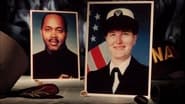
Double Cross
In 1996, Virginia Beach police arrive at the Makdessi apartment to find Elise Makdessi and her lover Quincy Brown dead. Elise's husband Eddie had reported that he killed Quincy Brown in self defense after Brown had murdered Elise. Eddie gave the police a videotape Elise had made a week before, alleging that she had been the victim of sexual harassment and assault while in the Navy. investigators found evidence that her allegations may have been part of an elaborate scheme for financial gain. Hoping to separate fact from fiction, they turned to forensic science.

Dancing with the Devil
In 1999, Patrick McRae was found dead in his Des Moines home and the crime scene was awash with blood. Analysis showed it had come from two people, one of whom was female. The male DNA was McRae's, which meant the killer was a woman. Leads dried up and the case went cold until a suspect arrested for drug possession offered police a deal, and told a bizarre tale of an exotic dancer named Andrea Morris who listened to the voices in her head. She was later charged in 2005 and sentenced to life in prison for the murder.

Last Dance
In 2000, the body of exotic dancer Rachel Siani was found beneath a New Jersey bridge and investigators wondered if she had committed suicide. Evidence at the scene proved not only that she'd been carried to the bridge and thrown over the side, but also that she was alive when she fell. Police first looked at customers at the gentlemen's club and discovered that Rachel offered to assist a drunk customer named John "Jack" Denofa back to his motel room and that was the last time Rachel was seen alive.
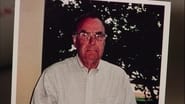
Constructive Criticism
In 2000, construction manager Darrell North was found dead in his work trailer in Ft. Worth, Texas. When investigators arrived, they found that he had been stabbed 46 times, described as overkill and indicating a personal relationship between the victim and the attacker. Police hoped that, during the struggle, the killer had left some of his own blood and his DNA behind. Their challenge was to find it. They looked at several suspects, but focused on the last person known to see North alive, sub-contractor Curtis Wayne Pope.

Home Evasion
In 2000, Judy Southern arrived home from work and was shot by a gunman waiting within. Her husband Allen arrived shortly afterwards, called 911 to report his wife had been shot and drove her to the hospital. She died on arrival and the investigation focused on her husband Allen, but forensic analysis and a suicide note found at the scene pointed to Jonathan Binney.
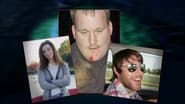
Window Watcher
In 1986, Gary Dale Larson was stabbed to death in his Edmond, Oklahoma home and then the killer sexually assaulted Larson's girlfriend Janet Haynes. Hayne's story seemed farfetched: The perpetrator was wearing only underwear and gloves broke into the house, stabbed Larson to death, then raped and terrorized her for hours afterwards. But, the evidence at the scene supported her story, and investigators turned for help to the FBI and their criminal profilers. The case remained cold until 2004, when Jonathan Scott Graham was arrested in the same neighborhood where Larson was murdered and footprint and DNA analysis placed Graham at the scene of the murder.

Stranger in the Night
In 1991, Dorothy Donovan was murdered in her Dover, Delaware home and police are skeptical when her son Charles Holden stated that she was murdered by a hitchhiker he had picked up. Their suspicions were heightened when he refused to take a polygraph test and they turned to forensic science. Would the blood and fingerprint evidence at the crime scene support Charles' story or prove his guilt? The case went cold for many years until the DNA of ex-con Gilbert Cannon linked him to the crime.

Kidnapping
In 2001, Ginger Hayes and her infant son Nicholas were abducted during a carjacking and the crime had been reported by a witness within minutes of occurrence. 45 minutes after the kidnapping, Ginger is seen with a black man in a local store's surveillance video and then they find her car in a nearby neighborhood. Both the witness to the carjacking and the owner of the home where the car was found pointed to Andre Edwards, but he wouldn't tell the police anything. A farmer 50 miles away called to report the body of a woman and a baby, which were determined to be Ginger, who had been beaten to death and her son Nicholas, who was still alive. Further analysis of Ginger's car and evidence at the scene where Ginger was found both linked Edwards to her death.

Sands of Crime
In the early hours of a morning just before Christmas, a college co-ed was abducted from the parking lot of her apartment. Her body was found later that day; she'd been sexually assaulted and then shot at point blank range. Eight long years passed and then a pair of running shoes and a cell phone breathed new life into a very cold case.
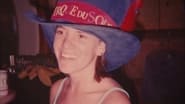
Calculated Coincidence
A young woman is found dead in her apartment. There's little evidence at the scene, leads don't pan out and the case turns cold... until police discover a link between their prime suspect and an unsolved murder committed six years earlier in different state.

Sworded Scheme
When a college student is reported missing, police believe their investigation will be like countless others, and she'd turn-up a few days later. But when they discover blood spatter in her boyfriend's bedroom, blood spatter someone had gone to great lengths to conceal, they know this case is going to be different.
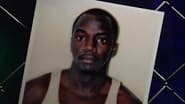
Unmasked
A serial rapist is on the loose in a Texas town. No one knew where he'd strike next, but the audacity of his attacks and the escalation of violence against his victims made finding him imperative.

Fashion Police
The victim has been stabbed more than thirty times, and the crime scene is awash with her blood. Near her head, police discover a distinctive button with strands of thread still attached. If they can find the owner of the shirt the button came from, they'll also find the killer.
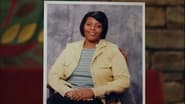
Church Dis-service
A young woman attends evening church services... then disappears. When her abandoned car is found, the tank is empty and a gas can she kept in her trunk for emergencies is missing. Eyewitnesses place her at a nearby gas station, getting into a van, but their descriptions of the vehicle don't match. Three days later when her body is discovered, the search for the driver of that van intensifies.

Seedy Intentions
When a nine-year-old girl goes missing, police and volunteers spend weeks searching for her. A psychic's vision leads to a field where her body is discovered, along with what investigators hope is enough evidence to help them to also find her killer.

DNA Dragnet
Digital enhancement of security camera video shows that what appears to be a casual encounter is actually a forced abduction, leading to murder. The perpetrator's MO is remarkably similar to another murder which occurred five months earlier, 15 miles away. When investigators learn the crimes might not be isolated or random, they also realise a serial killer may be on the loose.

Smiley Face
The woman had been sexually assaulted, stabbed repeatedly, and left for dead. She survived, and gave police a detailed description of her attacker. When someone who fit that description practically turned himself in, police were sure they had their man... until the DNA evidence proved them wrong.
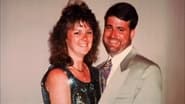
Dirty Laundry
The victim was a self-made man who never minced words. Perhaps he was murdered by a disgruntled client or employee. Perhaps the racy photos in his safe held the clue to solving the crime. Or perhaps with the help of the IRS, investigators could follow the money and find the killer.

Drowning Sorrows
A family vacation turns into a nightmare when the wife is found face-down in the lake. There are no witnesses and little conclusive evidence to help police determine if they're dealing with a suicide, an accident, or something more sinister... until a forensic pathologist uses a groundbreaking technique to discover the truth.
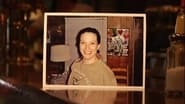
As Fault
The woman in the back of the truck was flailing her arms, screaming. They thought she was doing something dangerous for the fun of it. But when they found a jacket near a pool of blood, they knew what they'd seen wasn't a joy ride; it was an abduction.

Family Ties
When court clerk Peter Porco doesn't report to his work in November 2004, a courts officer is ordered to the Porcos' family home in Bethlehem, NY. Inside the home he finds murdered Peter Porco and his barely alive wife Joan who had both been savagely attacked with a fireman's axe. Eventually police can prove the crime was committed by the couple's son Christopher Porco.

Trouble Brewing
No description available.
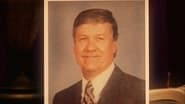
Holy Terror
This episode documents a deadly bombing at a church in Oakwood, Illinois, in December 1997.
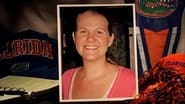
Needle in a Haystack
No description available.
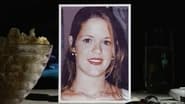
Room with a View
No description available.

Dollars and Sense
On Christmas eve 2005, the corpse of a black male is found burning near Baltimore. He's eventually identified as 26-year-old Wesley Person. Distinctive building materials from the 1930s found near the body play a crucial role in solving this case.

Hair Line
Doctors don't know why the young scientist is gravely ill. When tests finally reveal the cause, it's too late to save him. Police hope that lab analysis of his hair, showing when attempts were made on his life and what was used will lead to the killer.

All That Glitters is Gold
A bullet-riddled car, a missing driver, and no witnesses. Was this an ambush or a random attack? Had the victim been abducted or was she dead? The answers lay in a unique clue, so tiny it was measured in millionths of a meter.

Deadly Rebellion
Even though their daughter had run away before, she'd always come back. Her parents were sure this time would be no different, but they were wrong. Workers discovered the teen's half-naked body on the side of the road; her throat had been slit. Police hoped the single foreign hair found in a defensive wound on her thumb would lead them to the killer.

Sign of the Crime
In little more than a month, two women who lived in the same apartment complex were brutally murdered. The similarities of the crime scenes led police to conclude they were dealing with a serial killer who harboured an intense hatred of women... and they had to find him before he struck again.
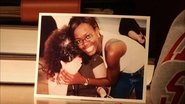
Covet Thy Neighbour
When a college co-ed vanished without a trace, her fellow students were concerned about her safety and their own. Weeks later, the body of an unknown female was discovered 700 miles away in the ashes of a barn fire, and an alert police officer realised the two crimes might be connected.

Writing on the Wall
The victim was well liked and successful, which made the brutality of the crime even harder to understand. In the final moments of her life, she'd written a name on the wall, presumably that of the killer – in her own blood. But this wasn't an open and shut case and, in order to solve it, investigators would have to read between the lines.

Hundreds of Reasons
An assistant manager of a Florida steakhouse is stabbed to death. It appears to be a robbery gone wrong, but a bloody fingerprint reveals that he knew his killer.

Cold Feet
James Kenneth Elmen Jr. abducted Julie Estes, then 21, from the Southside convenience store where she worked in 1985. He raped and murdered her. Her body was found the next day, but the killing went unsolved until 2003 when it became the first murder arrest by the new cold case squad at the Jacksonville Sheriff's Office. A sample of Elmen's blood was taken after sentencing for the 1986 rape and kidnapping of another woman and the attempted abduction of a third and his DNA was entered into a database, which was eventually matched to Estes' DNA. Elmen is also a suspect in the 1985 murder his 10-year-old half sister, Dana Loomis, and the slaying of a female acquaintance, Christina Casey. In June 1984 a jury acquitted Elmen of killing Steven Linthicum of Titusville.

Separation Anxiety
Tracey Frame, 35, was convicted of killing David Nixon in April 2002 after he planned to end their relationship.

Office Visit
A surgeon is stabbed to death, and the most likely suspect is seen in a restaurant at the time of the murder. Episode documents the murder of Brian Stidham.

Palm Saturday
In 2007, Brian & Beverly Mauck were found dead in their Graham, Washington home. Using a bloody palm print and shoe prints at the scene, investigators focus their attention on neighbor Daniel Tavares, who had previously been inking a tattoo on Brian's back.

Shoe-In for Murder
On May 12, 1994, Crystal Perry was viciously murdered in her home in Bridgton, Maine. Michael Hutchinson, 32, was found guilty of murder in the 1994 slaying at Perry's home.

Family Interrupted
On December 10, 2003, in a murder-for-hire scheme, Thomas "Bart" Whitaker hired Chris Brashear, his college roommate, to kill his family so he could inherit the estimated $1.5 million family estate.

Runaway Love
Rachael Mullenix, 19, was convicted of stabbing her mother, Barbara Mullenix, on Sept. 13, 2006, and then packing her bloodied corpse in a cardboard box before dumping it in Newport Bay on the California coast.

Watchful Eye
On May 20, 2001, Carrie Nelson, then 20, was beaten to death while working alone in a park office. The case went unsolved for six years until May 2007 when, in a routine check of DNA samples of prison inmates in South Dakota, police found a match with DNA samples gathered from the crime scene. The samples linked Randy Leeroyal Swaney, 35, to the murder. In August 2008, Randy Swaney was sentenced to life in prison.

Waste Mis-Management
Foul play is suspected when Fort Worth factory worker Glenda Furch disappears in September 2007 after completing her shift.
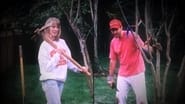
Dirty Little Seacret
Police get a clue about a couple who disappeared on Memorial Day weekend during an in-progress robbery. The evidence found solves a brutal crime. Episode documents the 2002 murders of Joshua Ford and Martha Crutchley by killers Erika and Benjamin Sifrit.

Lights Out
The decade-old murder of a young Texas housewife is investigated.

Pet Rock
In 1995, Palm Beach waitress Denise O'Neill is abducted and murdered. Her neighbour Luis Caballero arouses suspicions by his odd behaviour towards tv crews covering the crime. In the end police can prove Caballero and two other men committed the murder.

Best Foot Forward
In 2007, Shamaia Smith disappeared from the strip club she worked at in East Hartford, CT. Police look at various customers of the strip club, but focus on local businessman Kenneth Otto when there were inconsistencies with his story about the last time he had seen her. Upon search of Otto's rural property, cadaver dogs find something in a firepit, at which time he revokes their access. Upon revisit to the property, investigators find a variety of trace evidence, including part of a human foot.
Forensic Files: Season 14

Episode 1
No description available.

Episode 2
No description available.

Episode 3
No description available.

Episode 4
No description available.

Episode 5
No description available.

Episode 6
No description available.

Episode 7
No description available.

Episode 8
No description available.

Episode 9
No description available.

Episode 10
No description available.

Episode 11
No description available.

Episode 12
No description available.

Episode 13
No description available.

Episode 14
No description available.

Episode 15
No description available.

Episode 16
No description available.

Episode 17
No description available.

Episode 18
No description available.

Episode 19
No description available.

Episode 20
No description available.

Episode 21
No description available.
Forensic Files: Season 15

Episode 1
No description available.

Episode 2
No description available.

Episode 3
No description available.
Dont miss out on thousands of extra movies and TV shows, like:
Get International Netflix NowDont miss out on thousands of extra movies and TV shows, like:


